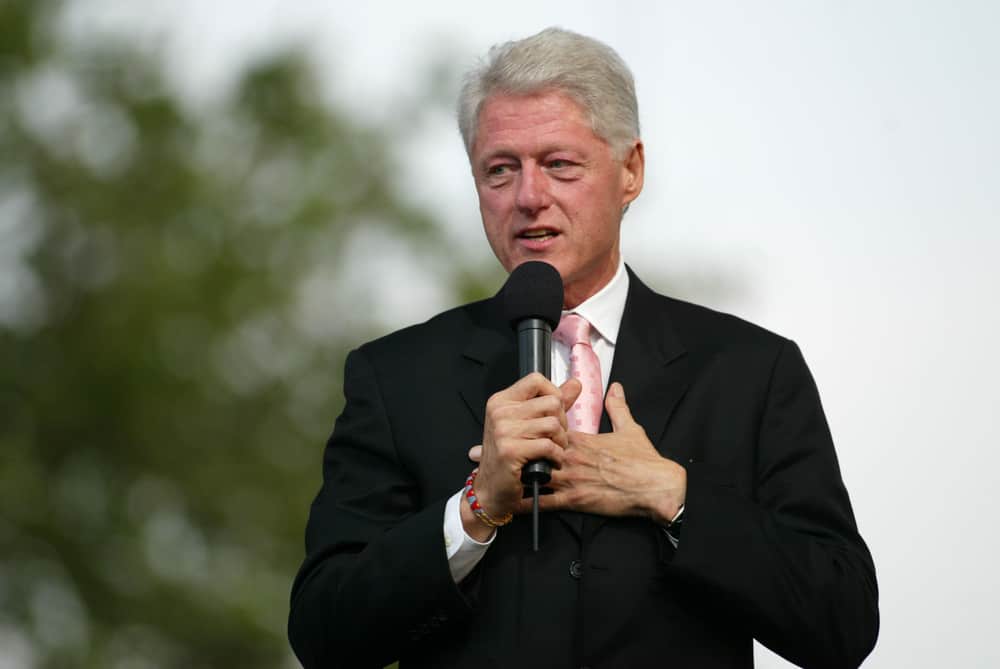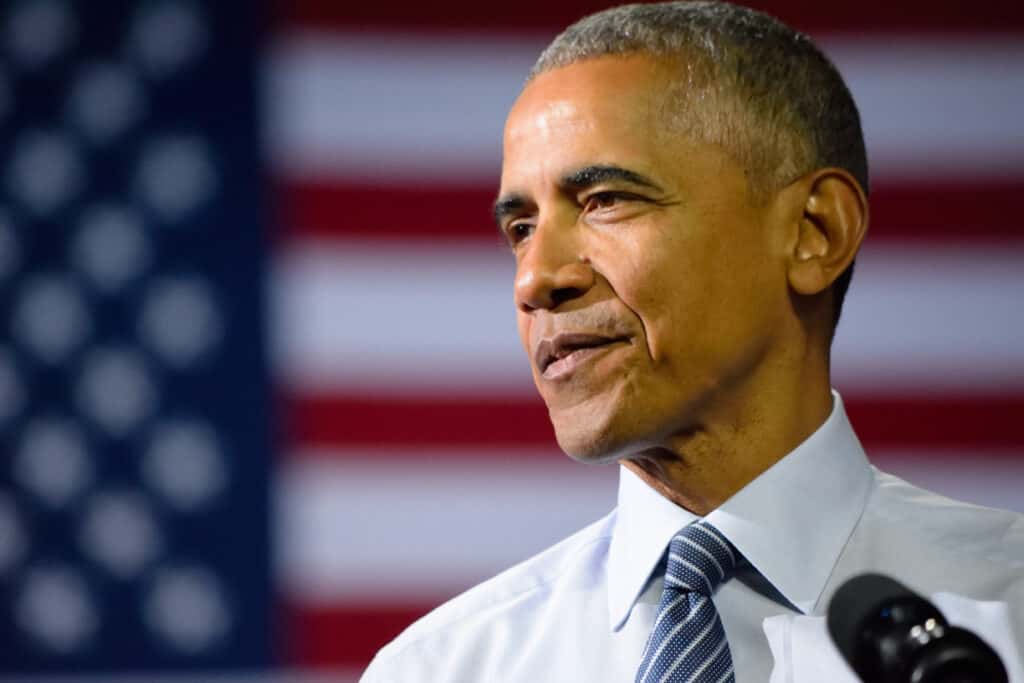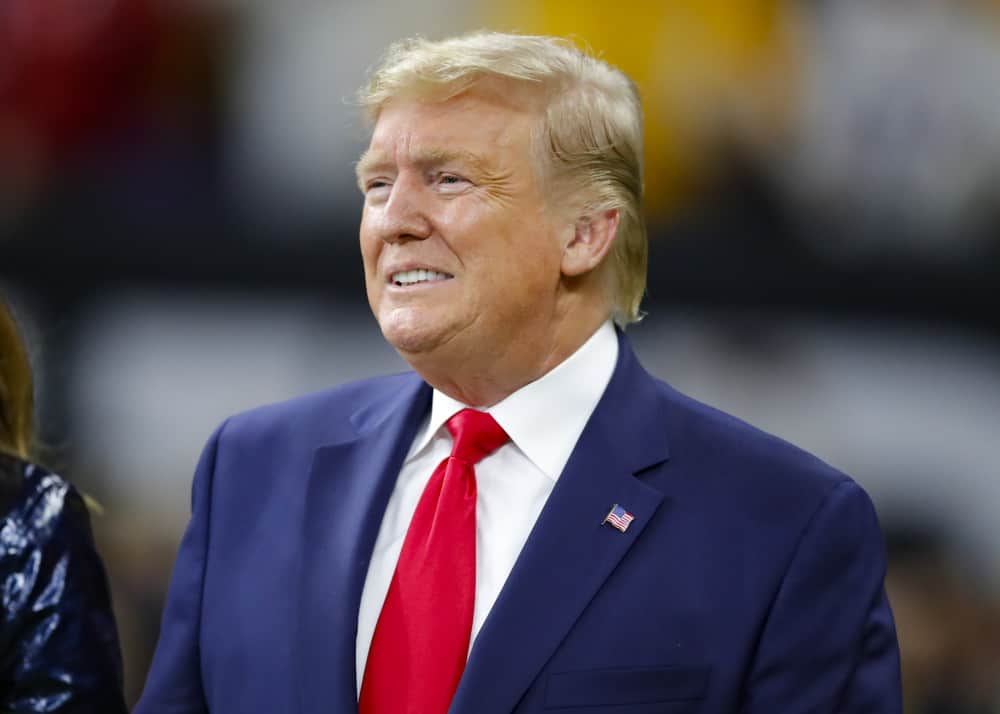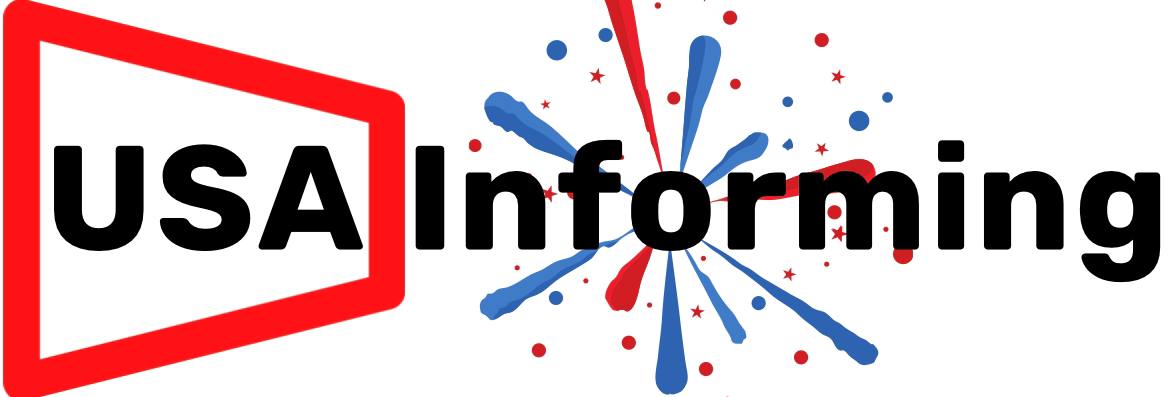Although the United States Presidency may have started with a veteran of the Revolutionary War, being a veteran isn’t a requirement for office.
Several presidents never served in the military.
While this doesn’t mean much during peacetime, it may make some citizens question the president’s experience should the country ever go to war.
Having military experience seems like it would be wise for someone who has the role of Commander-in-Chief.
Since it isn’t a requirement to have served in the military, however, there are 16 presidents who have not served in the military.
Here’s what you need to know about them.
Which Presidents Did Not Serve In The Military?
1. John Adams

After George Washington’s presidency, John Adams was elected to the office.
He also served as vice president during George Washington’s presidency.
It was a role he wasn’t particularly fond of since it didn’t serve much of a purpose.
Despite having been part of the American Revolution, John Adams was never part of the military and never took part in battle.
Instead, he served as a diplomat in France during the war.
His role was to garner support from France and learn new political philosophies that would shape the fledgling American government.
When the war was over, he eventually returned to the states and served as Washington’s vice president.
After the election in which he became the new president, Adams had a potential war on his hands.
Despite being former allies, France was proving to be difficult.
It was engaging in war with Britain.
While this alone wouldn’t have been a problem, it was making things difficult for American ships.
Since a lot of the warfare was naval, American ships had problems crossing the ocean to conduct business.
France said it would stop if the American government paid them.
This didn’t go over well with the new government.
A sort of cold war began with France.
Both governments had privateers who had the task of destroying American or French ships depending on who they worked for.
They were essentially pirates.
As the fighting grew worse and the potential for war seemed on the rise, both governments realized that neither wanted to enter a war.
The American government was still recovering from the American Revolution and solidifying itself.
The French government was recovering from its war with Britain and its own recent revolution.
John Adams signed a truce with the French despite some arguments from his cabinet.
In so doing, he avoided war.
Because he served as a diplomat before his career as a president and relied on privateers to harass French ships, John Adams never served in the military.
Despite that, he was well-known for his political philosophies.
2. Thomas Jefferson

Another important figure of the American Revolution is Thomas Jefferson.
Despite writing the Declaration of Independence, Jefferson never served in battle either.
He, like Adams, spent time in France instead.
In particular, Jefferson took over Benjamin Franklin’s role as minister to France.
Like Adams, he did what he could to make France allies of the new country.
Since he spent a great deal of time in France, he also saw the suffering of its people.
When France underwent its own French revolution, he was sympathetic to it.
This would put him at odds with several other members of the cabinet and congress.
It would lead to the first rift in political ideas.
The Federalists believed in a strong and centralized government.
They also did not support the French Revolution.
Key members of this party were John Adams and Alexander Hamilton.
The other party, primarily led by Thomas Jefferson, was the Democratic-Republicans.
They instead believed that most of the power should come from the states and not a centralized government.
The Democratic-Republicans supported the French Revolution.
Despite this support, Jefferson would try and keep the American government out of the Napoleonic Wars.
Despite French attempts to pull them in, and despite attacks on American merchant ships, Jefferson kept the country isolated.
He did face some warfare in terms of sending the navy to pursue Barbary pirates.
They were harassing American merchant ships as they conducted business.
Despite that, Jefferson never served in the military himself.
3. John Quincy Adams

The sixth president was the first who was also the son of a former president.
As the son of John Adams, John Quincy Adams grew up during the American Revolution.
He watched the Battle of Bunker Hill although he was too young to serve in it.
He’d also join his father in France where he’d learn diplomacy.
As he grew and became a lawyer, John Quincy Adams took on the same types of roles as his father.
He avoided serving in the military and instead became a minister to various countries over the years.
He worked alongside presidents who then had him serve as minister to the Netherlands and Russia.
Eventually, he ran for the highest office in the United States as well.
Although it was nearly a tie between him and Andrew Jackson, the younger Adams eventually won when Henry Clay chose to support him.
The supporters of Jackson called it corruption since Adams hired Clay as his Secretary of State following his election as president.
John Quincy Adams spent most of his presidency focusing on infrastructure projects.
He started the creation of a few highways and canals.
He also devised the development of universities and observatories in which more people could receive an elevated education.
His critics claimed that these acts went above what the constitution covered.
During his presidency, there weren’t any major wars.
As a result, he was able to focus on supporting the American people.
Even after his presidency, John Quincy Adams wouldn’t serve in the military.
He’d serve in the House of Representatives until his death two days after collapsing on the floor of the House in 1848.
4. Martin Van Buren

Van Buren was another president who never served in the military.
His presidency was rife with economic problems.
Van Buren started his career as a lawyer.
He eventually grew national support for Andrew Jackson in his area.
Jackson rewarded Van Buren’s support with a seat on his cabinet.
However, Jackson had problems with another cabinet member who would vie for the presidency in the future.
John C. Calhoun objected to many of Jackson’s campaigns and found supporters within the cabinet to make life difficult for him.
Van Buren was one of the few supporters that Jackson could count on.
To stop an impasse from occurring within the cabinet, Van Buren resigned.
Calhoun and his supporters were also forced to resign.
Jackson then formed a new cabinet and appointed Van Buren as his minister to Great Britain.
Calhoun, who had the deciding vote, voted against Van Buren’s elevation.
This vote was unpopular and sealed both Calhoun’s fate and Van Buren’s.
Eventually, Van Buren would take office himself as the president.
While the first three months of his presidency went off without any problems, it was after those three months that America faced its worst economic hardship to date.
Part of the problem had to do with Jackson’s decisions as president.
He had chosen to remove the Second Bank of the United States.
This meant that certain state banks no longer had restrictions on performing inflationary practices.
The economy at the time also experienced natural booms and busts.
It was the decisions of Jackson that made this particular bust the worst up to that point in the nation’s history.
With the economy in shambles, Van Buren spent most of his time trying to figure out a solution.
Many of the decisions he made only made the problem worse.
Dealing with these problems, Van Buren never had a chance to serve in the military.
5. Millard Filmore

Filmore was the epitome of the American Dream.
He grew up in the frontiers and worked primarily on his father’s farm.
He attended school and eventually started his education towards becoming a lawyer.
Filmore would find himself serving in Congress before too long.
Then, President Zachary Taylor chose him as his vice president.
As vice president, Filmore didn’t have too much to do aside from helping his president.
Taylor eventually died in office, and Fillmore found himself to be the new president of the United States.
The biggest problem during his presidency was the issue with the Compromise of 1850.
At this point in history, many states and leaders were looking to abolish slavery and free the slaves.
However, there were just as many leaders who wanted to continue to permit slavery.
As the country started to add more states to its population, the leaders struggled to decide on how to add them.
Some wanted to add them as slave states.
Others wanted to make slavery illegal in the new states.
Filmore had promised Taylor that he would support the Compromise which sought to put a stop to the end of slavery.
With his support and with the help of Stephen A. Douglas breaking the Compromise into several bills, they passed it.
The Compromise stated that California would join the United States as a new state and that it would be free.
It also abolished the slave trade in Washington D.C.
However, it also passed the Fugitive Slave Act which allowed slaveholders to pay certain individuals to find runaway slaves and return them to them.
Many of Filmore’s critics took issue with this particular clause of the Compromise.
Since most of his experience was domestic and he served as a lawyer beforehand, Filmore never served in the military.
6. Grover Cleveland

Although Cleveland was of age to serve in the American Civil War, he paid a Polish immigrant to serve in his place.
This was a legal thing that someone could do if they had the money to do so.
Cleveland, at that time, had established himself as a lawyer and had even started his own firm.
However, he had his sights on higher ideals.
As someone who saw himself as a watchdog rather than someone who initiated things, he brought a different kind of role to the presidency.
He tended to react to things as they happened instead of implementing new ideas or new laws.
Although this gained some support among Republicans, he’d eventually struggle with his second term.
During his second term, the economy faced a depression.
He focused all his energy on the Treasury rather than businesses or farmers.
He struggled to jumpstart the economy and, as a result, lost much of his support.
He wouldn’t run for another term and none of his former supporters suggested his name either.
Cleveland didn’t serve in the military since he paid someone else to do it for him.
7. William Howard Taft

Although a few battles and wars were going on during Taft’s life, he never served in the military either.
Taft struggled as a president because the country was unsure which direction it wanted to go.
The president before him, Theodore Roosevelt, had introduced several progressive laws.
This created a party within Congress devoted to progress.
The other side was more conservative and wanted to limit the powers of the government.
Taft found himself struggling to appease both sides although he did pass laws that both sides would have appreciated.
Taft tended to see himself as a lawyer rather than a politician, and it was what he preferred.
He had wanted to join the Supreme Court, initially, but his wife had encouraged him to seek an even higher goal.
Taft didn’t particularly enjoy his presidency and felt he found his calling as Chief of Justice during President Warren Harding’s presidency.
8. Woodrow Wilson

Another famous progressive president was Woodrow Wilson.
He was a young boy during the Civil War and saw its effect on the people and the soldiers.
That experience stayed with him as he pursued academics.
Although he primarily worked as a teacher and professor, he eventually caught the eye of the Republican party.
They believed that he might be an ideal conservative party member and supported him to be the Governor of New Jersey.
Wilson surprised them by running on a progressive platform instead.
He received a high number of electoral votes and became the governor.
Eventually, he’d make his way to the White House when World War I was beginning.
He decided that the United States would play a neutral role.
Many supported this decision.
Instead, he focused his attention on progressive ideals like making child labor illegal and restricting the number of hours that railroad workers could work to eight.
These changes had support among progressives, but the conservatives didn’t like them.
Still, he had enough support to gain another term as president.
This time, however, he said that the United States could no longer be neutral in World War I.
It was their duty to safeguard democracy.
While he’d serve as Commander-in-Chief during World War I, Wilson never served in the military himself.
9. Warren G. Harding

Following Woodrow Wilson and World War I, Harding wanted to return the country to a sense of normality.
Despite being alive during World War I, Harding was likely considered too old to serve.
His presidency saw a return to conservatism after many progressive steps had taken place during the war.
He removed many of the powers that Wilson had established during the war.
He also removed many of the restrictions on banks and cut taxes.
His administration was also fraught with scandal.
Many members of his administration took advantage of their positions to make more money in their businesses.
Before the public became aware of the scandal, Harding died of a heart attack in the third year of his presidency.
10. Calvin Coolidge

Following Harding’s death, his vice president, Calvin Coolidge, became the new president.
He was another conservative who wanted to limit the power of the government as much as possible.
Part of that was by refusing to aid farmers who experienced droughts.
Like Harding, Coolidge also did not serve in the military.
Instead, he stayed home while other soldiers fought in the war and spent time climbing the political ladder.
He also supported isolation from foreign policy.
When the scandals from the Harding administration came to light, Coolidge also had to spend a lot of time and effort repairing the reputation of the president in the eyes of the American people.
11. Herbert Hoover

Although Herbert Hoover never served in the war as a soldier, he did have some experience with it.
Early in his career, he worked in China as a mining engineer.
During that time, he found himself involved in the Boxer Rebellion.
The area in which he lived saw frequent attacks.
He helped the soldiers set up barricades and even helped evacuate children.
His wife worked in the local hospital.
After the Rebellion was over, World War I started.
Wilson tasked Hoover with being the Head of the Food Administration.
Hoover had been using his own funds and business sense to feed starving families before then.
With his new position, he managed to cut the cost of feeding the army while still ensuring the army had enough food.
He’d continue with his efforts to feed starving families in Europe long after the war.
Eventually, he’d become president, but he believed in a conservative approach to government.
As the Great Depression started in his presidency, he offered some help, but he mostly left it to local and state leaders to handle the problems.
Because of this, many blame Hoover for not acting enough to help American families.
12. Franklin D. Roosevelt

Although Roosevelt never served in the military, he did have some experience when he received the appointment as Assistant Secretary of the Navy.
Throughout his life, Roosevelt would always have a soft spot for the Navy.
Any dreams he had of actually serving in the military ended when he developed polio.
He lost the use of his legs and suffered other ailments, too.
Despite this disability, Roosevelt climbed to the oval office and became the president during a terrible period in our nation.
The Great Depression was in full swing.
World War II was quick to follow.
Despite these problems, Roosevelt introduced progressive laws that saved the country.
He’d then go on to serve as Commander-in-Chief during World War II.
Because of World War II, many presidents who followed Roosevelt served in the military.
It was a time when many men found themselves fighting the Nazi Regime in Europe.
For several decades, every president elected to office had some military experience.
13. Bill Clinton

Until the 1990s, the presidents after FDR and before Bill Clinton had all served in the military.
Whether it was World War II, the Korean War, or the Vietnam War, they all played a role as a soldier or something similar.
Clinton was the first president in a long time who did not have any military experience.
That was largely because the United States was experiencing an extended time of peace.
That peace would continue through his presidency.
His presidency focused on improving lives at home.
He attempted healthcare reform, restricted sales of certain firearms, and attempted to cut down racial discrimination.
14. Barack Obama

Although the military deployments in Iraq, Iran, and Afghanistan were never considered wars in the strictest sense, some soldiers served there.
Obama was not among them.
He focused his time on the study of law and became a senator for a short time before reaching the presidency.
His administration focused on providing healthcare access for everyone, protecting women’s rights, and supporting the right of LGBTQ+ people to marry.
It was also during his presidency that the terrorist responsible for the 9/11 attacks died.
A task force discovered Osama bin Laden’s hideout and executed him.
For many, this was a sign that the “war” on terrorism had ended.
15. Donald Trump

Following Obama was Donald Trump.
Like some other former presidents, Trump also did not serve in the military.
He was eligible to fight during the Vietnam War, but like many other sons of influential families, he managed to receive a deferment from the draft.
In particular, he had a few health ailments that prevented him from serving.
He also received a deferment based on his attendance at college.
This was a common type of deferment used by many men during the Vietnam War.
His presidency included tax cuts, immigration restrictions, and addressing other conservative concerns.
16. Joe Biden

Although Joe Biden was also of age to serve in the Vietnam War, he did not serve in the military.
He received a deferment based on asthma when he was younger.
He also got a deferment because he was attending college at the time.
Although his son would go on to serve as a soldier, Biden never served himself.
His current administration is focusing on providing relief for American families following the COVID-19 pandemic and pushing for green technology and an end to a fossil fuel economy.
NEXT:
75 Animals That Start With O (With Pictures)

